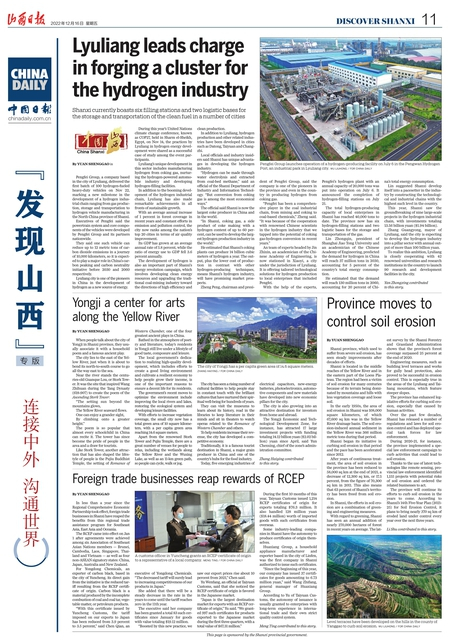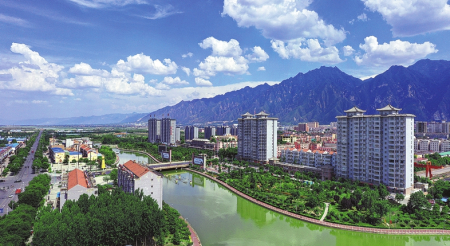Yongji a center for arts along the Yellow River
When people talk about the city of Yongji in Shanxi province, they usually associate it with a household poem and a famous ancient play.
The city lies to the east of the Yellow River, just when it is about to bend its north-to-south course to go all the way east to the sea.
Near the river stands the centuries-old Guanque Lou, or Stork Tower. It was the site that inspired Wang Zhihuan during the Tang Dynasty (618-907) to create the poem of the Ascending Stork Tower:
"The setting sun beyond the mountains glows,
The Yellow River seaward flows.
One can enjoy a grander sight,
By climbing onto a greater height."
The poem is so popular that almost every schoolchild in China can recite it. The tower has since become the pride of people in the area and a draw for tourists.
Like Stork Tower, another attraction that has also shaped the lifestyle of people is the Pujiu Buddhist Temple, the setting of Romance of Western Chamber, one of the four greatest ancient plays in China.
Bathed in the atmosphere of poetry and literature, today's residents in Yongji still live under a lifestyle of good taste, composure and leisure.
The local government's dedication to realizing high-quality development, which includes efforts to create a good living environment and cultivate a resilient economy to help people grow their income, is one of the important reasons to ensure a decent life for its residents.
The government's recent moves to optimize the environment include improving the local rivers and lakes, restoring the ecological system and developing leisure facilities.
With efforts to increase vegetation coverage, the small city now has a total green area of 10 square kilometers, with a per capita green area reaching 14.6 square meters.
Apart from the renowned Stork Tower and Pujiu Temple, there are a great number of venues for people to relax, including the wetlands along the Yellow River and the Wuxing Lake, as well as an 11-km green path, so people can cycle, walk or jog.
The city has seen a rising number of cultural facilities to help people stay in constant touch with the brilliant cultures that have nurtured their spiritual well-being for hundreds of years.
They can visit the museums to learn about its history, read in the libraries to keep literature in their minds and sit in theaters to watch operas related to the Romance of Western Chamber and others.
To help residents increase their revenue, the city has developed a competitive economy.
Traditionally, it is a famous tourist destination in Shanxi, a major grain producer in China and one of the country's hubs for the food industry.
Today, five emerging industries of electrical capacitors, new-energy batteries, photoelectronics, automotive components and new materials have developed into new economic pillars for the city.
The city is also growing into an attractive destination for investors from home and abroad.
The Yongji Economic and Technological Development Zone, for instance, has attracted 17 large investment projects with funding totaling 14.12 billion yuan ($2.02 billion) yuan since April, said Yun Chenxing, chief of the zone's administration committee.
Zhang Haiying contributed to this story.
By YUAN SHENGGAO












